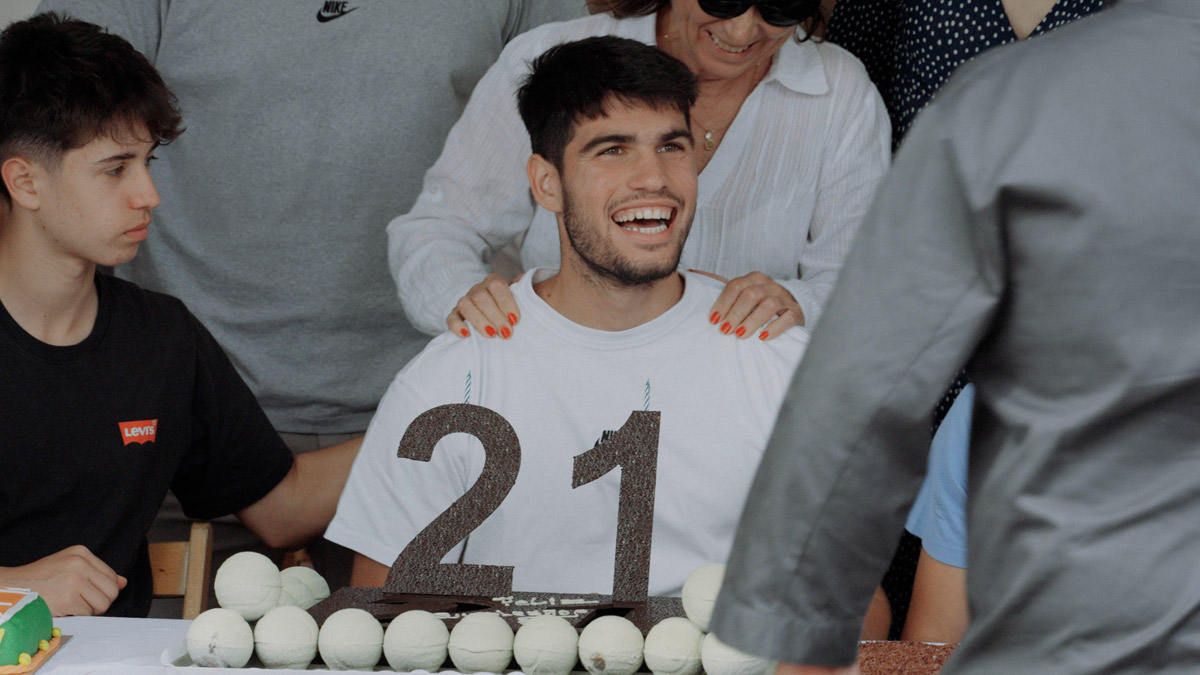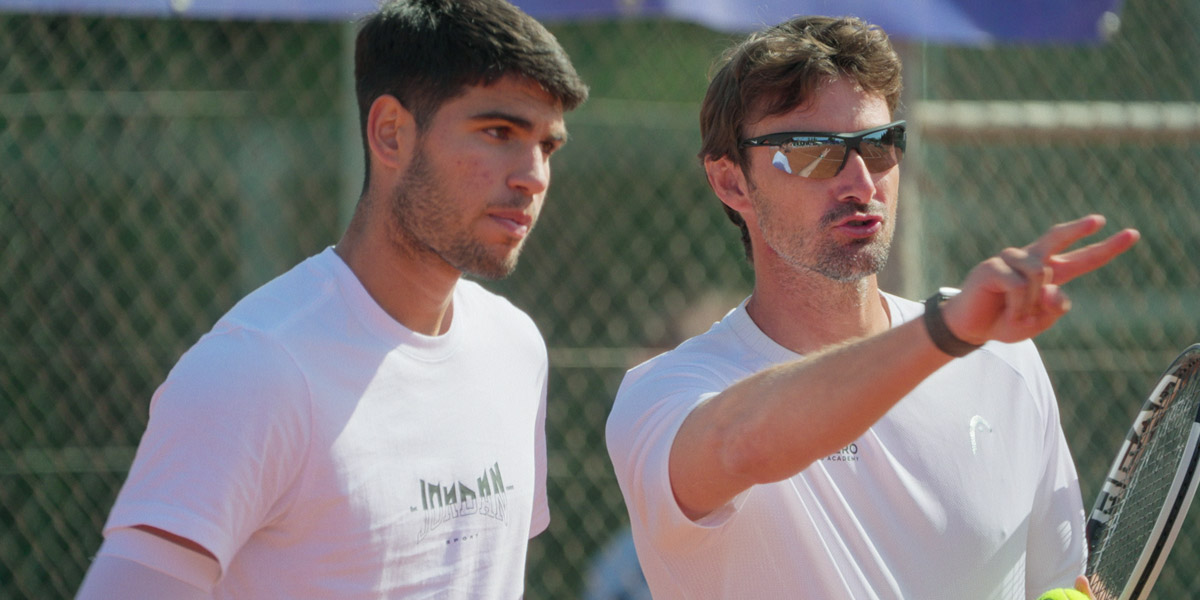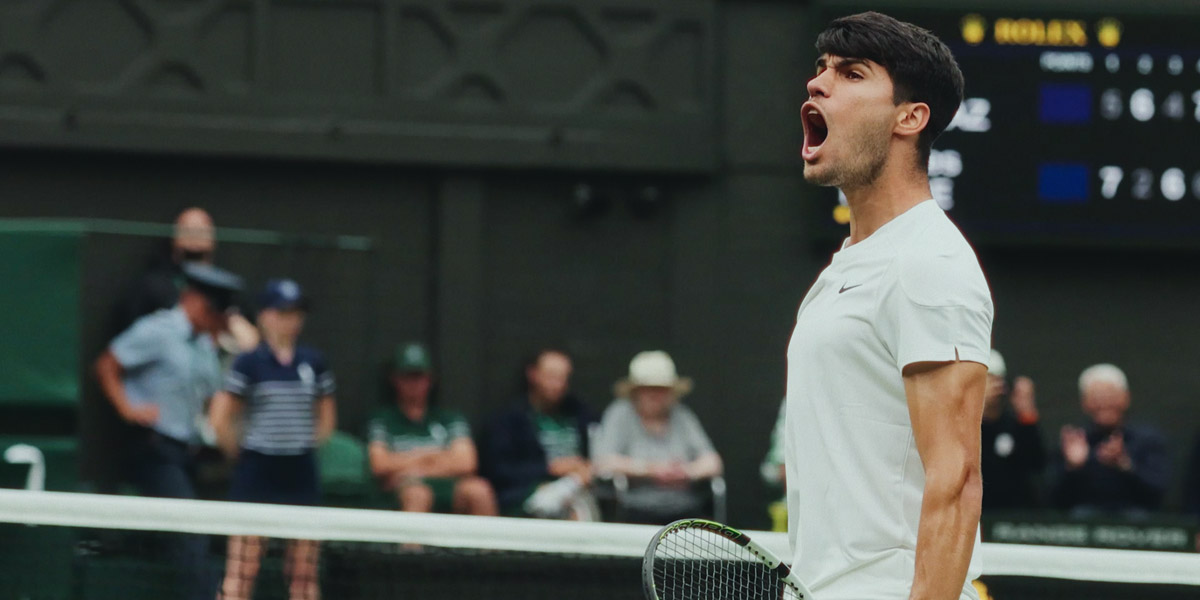As someone who follows tennis, I’ve been irritated in recent years by the packaging around the sport’s new “bright star,” Carlos Alcaraz. Alcaraz is Spanish, turning 22 years old on Cinco de Mayo, and he’s already won four major titles: two Wimbledon titles, a Roland Garros title and a Us Open title. He also won the silver medal at the Paris Olympics, losing to Novak Djokovic in the gold-medal match. Alcaraz is genuinely charming, on and off court, but the packaging around him often feels inorganic, like everyone just decided that Carlos was That Guy and immediately began to build him up as the next Rafa/Roger/Novak. It feels the same way with Jannik Sinner, although it feels even more inorganic in Sinner’s case.
Well, Alcaraz and his team put together a three-part Netflix docuseries called Carlos Alcaraz: My Way. I’ve watched it this week and it has me feeling so sorry for Alcaraz, honestly. His family sent him off to a tennis academy when he was very young, and then he turned pro when he was 15/16. Everything was built up around him – his coaching team, his management team, almost all of the same people around him since he was 16 years old, all of the same people who are used to telling him where to go, what to say, how to behave and how to play.
Some of the most disturbing moments in the series come when he’s clearly dealing with injuries. His team – entirely made up of middle-aged men – tell him to push through the pain and keep playing. They keep telling him that the biggest problem isn’t his injury-prone “glass” body, it’s his mind, and that he shouldn’t be scared to play through the pain (even if he could be doing real damage to his body). They freak out every single time Alcaraz wants to take a break or rest his body. They freak out whenever he wants to party for a few days after winning a major title. They freak out every time he suggests that his priority is to enjoy his life and tennis at the same time.
While all of that is honestly appalling, it’s even worse than that. The men around Alcaraz are so relentlessly joyless that they cannot understand why Alcaraz would even want to celebrate winning back-to-back Wimbledon titles or his third major at the age of 21. Everyone believes that Alcaraz and Sinner are the “replacements” for the Big Three (Djokovic, Nadal and Federer), and so Alcaraz’s team uses the Big Three as the template for Alcaraz’s career. It’s like they’re mad at him for not having twenty Slams already. It’s like they can’t understand why Alcaraz would even celebrate his third Slam when he’s on this grim, robotic path to win 25 Slams.
This series has really made me hope that Alcaraz understands that the people he had around him at 16 are possibly not built for his long-term career. That part hasn’t come to him yet though – while he’s getting old enough to say “no” to his team and do things “his way,” I don’t think he understands that he’s old enough to surround himself with different people, and that he can actually hire and fire people. There’s absolutely a part of him where he just wants to be home with his family and friends and not have to worry about all of the “business of tennis.” He’s kept the same team around him because he doesn’t want to deal with it, because he prefers the same set up he had six years ago. But everyone grows up eventually, and I have high hopes that he will understand that staff shake-ups are necessary.
The same week this Netflix series came out, Alcaraz withdrew from the Madrid Open because of an adductor tear in his right leg, which he got playing in Barcelona last week. As I said, he has a glass body – he needs a team made up of people who will tell him that these injuries are not all in his head.



















.jpg.webp?itok=1zl_MpKg)





 Bengali (Bangladesh) ·
Bengali (Bangladesh) ·  English (United States) ·
English (United States) ·